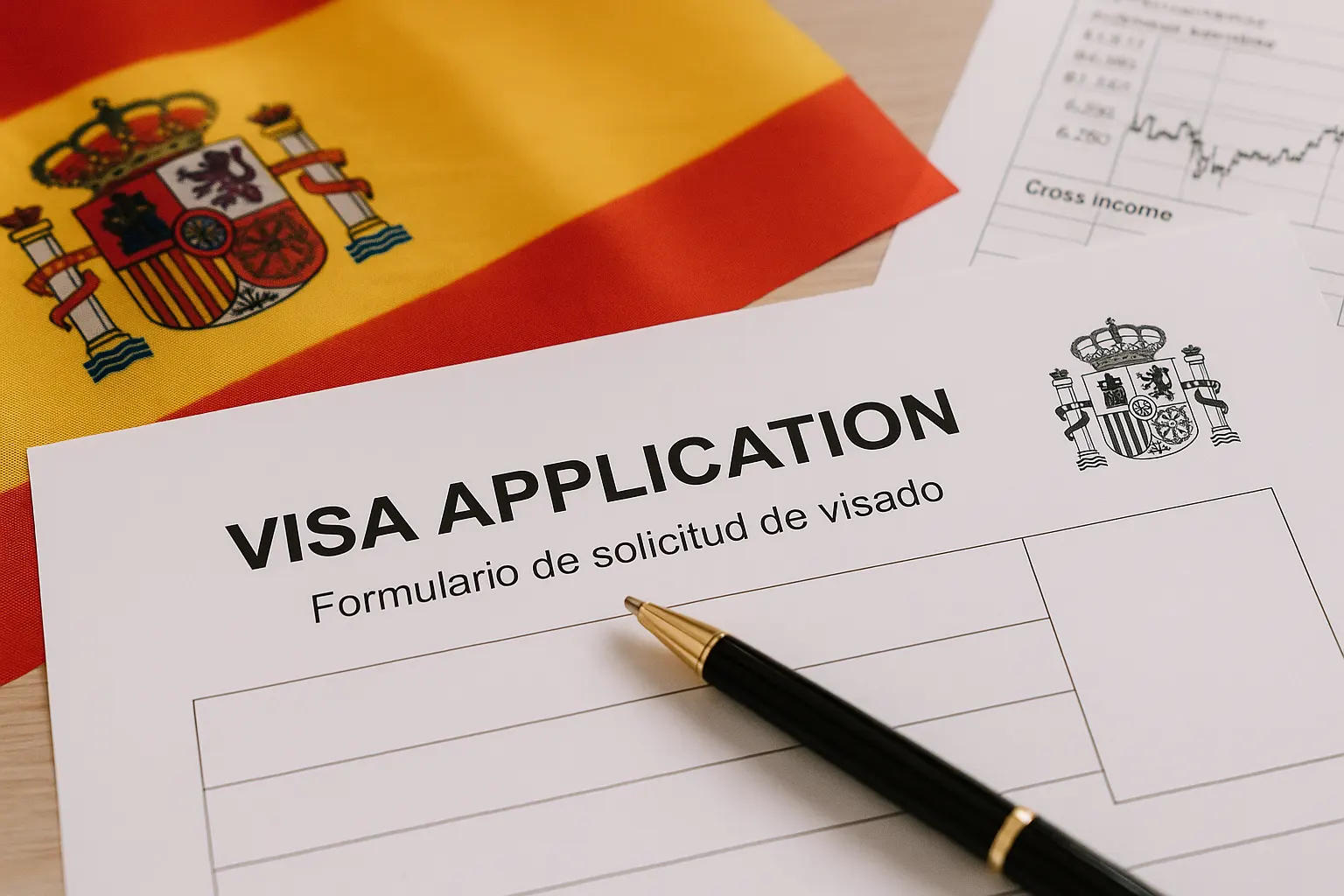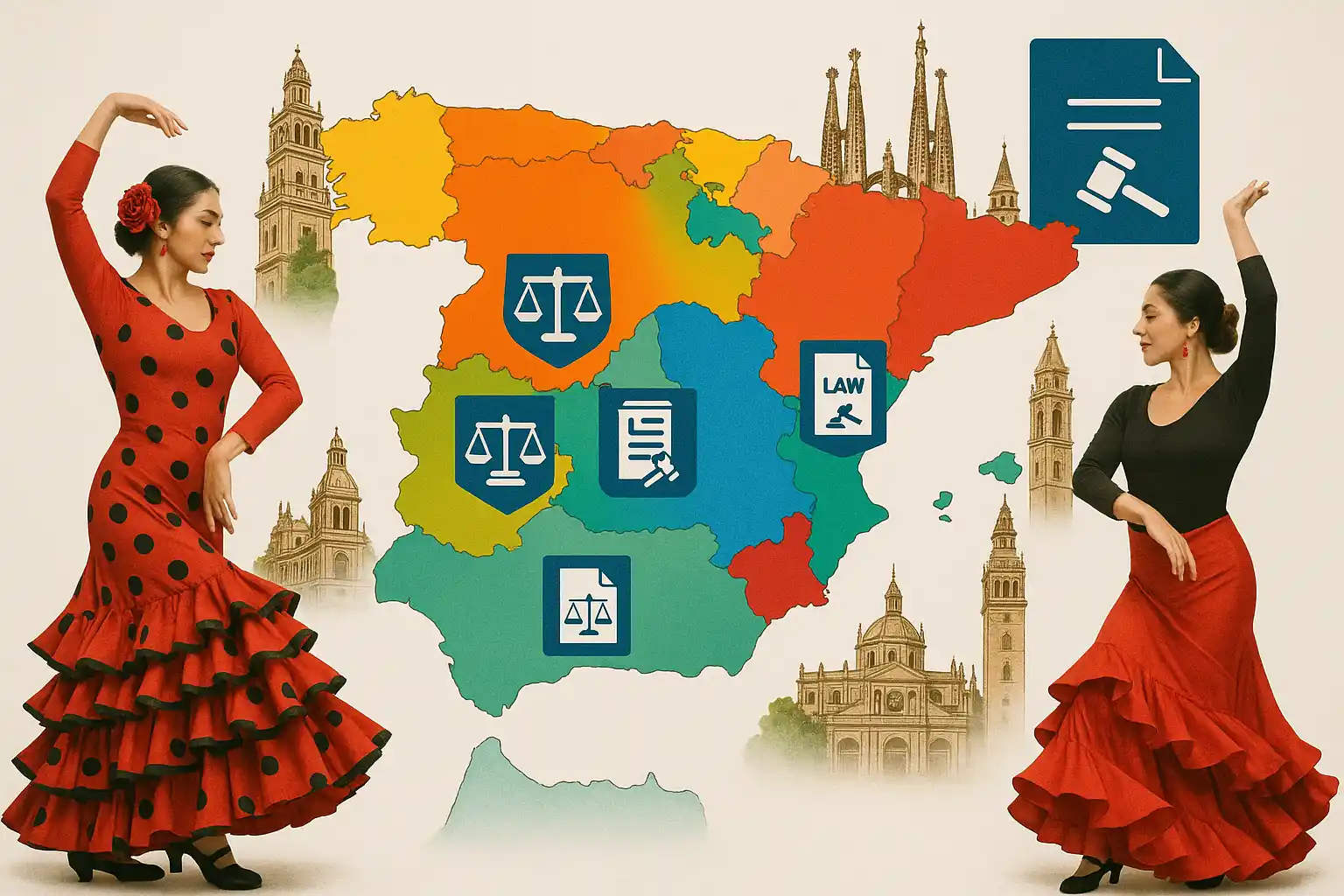The rise of remote work has prompted countries worldwide to introduce digital nomad visas, designed to attract professionals seeking flexibility while living abroad. Among the most sought-after options are the Thailand digital nomad visa and the Spain digital nomad visa. The latter, in particular, is part of a broader trend where countries like Spain are becoming popular destinations for remote workers due to their appealing lifestyle and work opportunities.
This article aims to assist remote workers in evaluating the key features of these visas. Understanding their differences will support informed decisions about choosing between digital nomad Thailand and Spain digital opportunities for work and residence under a remote work visa Spain or similar permits. Furthermore, it might be beneficial to consider other options such as Portugal or Greece which also offer attractive digital nomad visas.
Executive Summary / TL;DR
Thailand Digital Nomad Visa (Destination Thailand Visa)
- Validity: Up to 1 year with possible extension
- Application: Requires proof of remote employment and financial means
- Advantages: Affordable living costs, vibrant culture, tropical climate
- Disadvantages: Limited access to certain public services, language barriers
Spain Digital Nomad Visa (National Telework/Nomad Visa)
- Validity: Initial 1-year residence permit, extendable up to 5 years
- Application: Involves submitting documentation before arrival, obtaining NIE number post-arrival
- Advantages: Access to healthcare and social services, strong legal protections, rich cultural experiences
- Disadvantages: Higher cost of living, more complex application process
Key differences lie in eligibility criteria, application procedures, and lifestyle benefits. Remote workers should weigh priorities such as budget, duration of stay, and access to services when choosing between the thailand digital nomad visa and spain digital nomad visa. For those investigating remote work visa Spain options or seeking insight into digital nomad visa Spain requirements, understanding these distinctions is essential.
Understanding Digital Nomad Visas
A digital nomad visa is a legal permit that allows remote workers to live and work in a foreign country without the usual restrictions of traditional work visas. This type of visa acknowledges the changing nature of work, where many professionals can work from anywhere as long as they have an internet connection.
Key Features of Digital Nomad Visas
Here are some important features of digital nomad visas:
- You can live in another country for a longer period, usually between six months and two years.
- You are allowed to do remote work for companies or clients who are based outside the country you are staying in.
- Most visas require you to show proof of steady income and have health insurance coverage.
Popular Countries Offering Digital Nomad Visas
Thailand and Spain are two countries that have become popular choices for digital nomads by offering specific visas designed for them. These countries are attracting more and more remote workers because they provide:
- Thailand: Affordable living expenses, warm weather, lively culture, and good infrastructure that supports thailand digital nomads looking for both a comfortable lifestyle and reliable internet access.
- Spain: Rich history, diverse cities, excellent healthcare system, and being part of the European Union which makes it easier for spanish nomads to travel within Europe while working remotely.
Both Thailand and Spain are responding to the growing number of professionals who want clear legal status and flexible stay options as they continue their careers abroad.
Thailand’s Destination Thailand Visa (DTV) Explained
The Thailand Digital Nomad Visa, officially known as the Destination Thailand Visa (DTV), caters specifically to remote workers seeking extended stays in the country while maintaining employment abroad. This visa supports those who want to enjoy Thailand’s unique blend of cultural richness and natural beauty without the constraints of short-term tourist visas.
Validity and Stay Duration
- The DTV grants a stay of up to 270 days.
- It is typically issued for three consecutive 90-day entries, allowing flexibility in travel and residency within this period.
- Extensions may be possible but require compliance with immigration regulations.
Application Process
Applicants for the Thai digital nomad visa must submit their applications through designated Thai embassies or consulates outside Thailand. Online application platforms are being developed but are not yet universally available. The process involves:
- Completing the visa application form.
- Attaching required documents.
- Scheduling an appointment at the relevant embassy or consulate.
- Awaiting processing, which can take from several days up to a few weeks depending on location and demand.
Required Documents
Key documents for Thailand’s DTV include:
- Proof of remote employment or business ownership outside Thailand.
- Financial evidence demonstrating sufficient funds to support the stay, such as bank statements showing a minimum monthly income or savings (thresholds vary, commonly around USD 40,000 annual income). For more insight on how to show evidence of sufficient funds, you might find this discussion helpful.
- Valid passport with at least six months remaining validity.
- Health insurance coverage valid in Thailand for the duration of stay.
- Letter stating intent to work remotely without engaging in local Thai employment.
This visa does not permit working directly for Thai companies or clients based within Thailand; it strictly covers remote work for foreign employers or self-employment tied to markets outside the country.
Comparing the Thai digital nomad visa with Spain’s counterpart reveals differences in application complexity, stay length, and financial requirements that influence prospective digital nomads’ destination choices. Detailed scrutiny of eligibility and lifestyle preferences becomes essential when deciding between these options. For a broader understanding of global digital nomad visas, including insights from sources like KPMG’s Digital Nomad Remote Work Tracker Map, could provide valuable information.
Spain’s National Telework/Nomad Visa Unveiled
Spain’s National Telework or Digital Nomad Visa targets non-EU remote workers seeking legal residence while performing their jobs remotely. This visa enables stays of up to one year initially, with the possibility of renewal for an additional two years, depending on compliance with residency requirements.
Validity and Duration
- Initial approval grants a stay for 12 months.
- The visa is renewable, allowing for a maximum total stay of three years.
- Holders can travel throughout the Schengen Area during the visa’s validity period.
Application Submission Process
Applicants generally must apply at the nearest Spanish consulate or embassy abroad before entering Spain. Key procedural steps include:
- Pre-application preparation: Gather required documentation demonstrating eligibility according to Spain digital nomad visa requirements.
- Submission: File the application in person or via a legal representative at the consulate.
- Processing time: Typically ranges from 1 to 3 months, varying by consulate workload.
- Post-arrival registration: Upon arrival in Spain, applicants obtain a Foreigner Identification Number (NIE) and register with local authorities to activate their residence status.
Essential Documentation
Strict adherence to document requirements is critical for approval, including:
- Valid passport with minimum six-month validity beyond intended stay.
- Proof of remote employment or self-employment with a company registered outside Spain.
- Evidence of sufficient financial means, such as bank statements or employment contracts.
- Health insurance coverage valid in Spain.
- Criminal record certificate from country of origin and previous residence if applicable.
- Completed visa application forms and recent photographs.
Spain requires clear proof that remote work will not involve engaging in local labor markets, aligning with its focus on facilitating telework without direct employment within Spain.
The clarity and thoroughness of submitted documents significantly impact processing success. Precision in meeting Spain digital nomad visa requirements ensures smoother navigation through bureaucratic procedures, enabling prospective nomads to benefit from Spain’s vibrant culture and infrastructure while maintaining legal work status.
Comparing Eligibility Criteria for Both Visas
Understanding the Thailand digital nomad visa requirements alongside the Spain nomad visa requirements reveals key distinctions in eligibility that can influence applicant suitability.
Age & Residency Requirements
Thailand Destination Thailand Visa (DTV)
- No explicit upper age limit specified.
- Applicants must be non-Thai nationals currently residing outside Thailand at the time of application.
Spain National Telework/Nomad Visa
- Typically targets adults aged 18 and above; no stated maximum age limit.
- Requires applicants to reside outside Spain before submitting the application and to maintain non-residency status during the process.
Financial Proof & Employment Status
Financial Proof
- Thailand DTV mandates proof of stable income or substantial savings, generally demonstrating a minimum monthly income or bank balance (specific thresholds vary, often around USD 3,000 per month or equivalent).
- Spain Nomad Visa demands evidence of sufficient financial means to support oneself without becoming a burden on public funds, with income requirements typically starting at approximately €2,000 per month.
Employment Status
- Both visas require applicants to be employed by companies registered outside the host country or self-employed with clients primarily abroad.
- Remote work must be conducted for foreign employers or personal business activities not linked to the local labor market.
Applicants should prepare comprehensive documentation proving their remote employment status and financial stability according to each country’s criteria. These eligibility factors play a decisive role in securing approval and highlight essential considerations for digital nomads choosing between Thailand and Spain.
Navigating the Application Process: Thailand vs Spain
Thailand Digital Nomad Visa Application Process
Applying for Thailand’s Destination Thailand Visa (DTV) involves several key steps. The applicant must start by visiting the Thailand digital nomad visa official website to access the application forms and detailed instructions. The process includes:
- Preparation of Documents: Valid passport, proof of remote work or freelance employment, financial statements demonstrating sufficient funds, health insurance covering the stay period.
- Submission: Applications can be submitted online or at designated Thai consulates abroad.
- Processing Time: Typically ranges from 15 to 30 days depending on the consulate or online processing center.
- Visa Issuance: Upon approval, the visa allows a stay of up to one year, with possible renewal options.
Applicants should ensure all documents meet specified criteria on the official site to avoid delays.
Spain National Telework/Nomad Visa Application Process
The application procedure for Spain’s digital nomad visa differs notably:
- Pre-Arrival Application: The initial visa request is submitted through Spanish consulates outside Spain or via online platforms where available.
- Required Documentation: Includes valid passport, proof of remote employment or business ownership, financial solvency evidence according to Spain digital nomad visa requirements, and health insurance.
- Entry and NIE Number: After arrival in Spain, obtaining the Número de Identificación de Extranjero (NIE) is mandatory for tax and legal purposes. This identification facilitates access to services during the stay.
- Residence Card (TIE): Within 30 days of arrival, applicants must apply for a residence card that confirms their legal status under this visa category.
- Processing Duration: Initial approval may take up to 90 days; post-arrival procedures vary by region.
Comparing the two processes highlights differences in submission methods—Thailand offers direct online submission options while Spain requires pre-arrival applications and formal registration upon entry—impacting planning for prospective digital nomads evaluating Thailand digital nomad visa vs Spain digital nomad visa pathways.
Weighing Lifestyle Factors and Benefits as a Digital Nomad in Thailand or Spain
Living Costs & Environment
The lifestyle of digital nomads in Thailand is characterized by notably affordable living expenses. Cities like Bangkok and Chiang Mai offer vibrant urban environments with modern amenities, combined with rich cultural experiences at a fraction of costs typical in Western countries. Accommodation, food, transportation, and entertainment tend to be budget-friendly, allowing nomads to enjoy a high quality of life without excessive spending.
In contrast, the lifestyle of digital nomads in Spain involves higher living costs, especially in major cities such as Madrid and Barcelona. Rent and daily expenses can be significantly more expensive compared to Thailand. The trade-off comes with access to extensive cultural heritage, diverse gastronomic options, and well-developed infrastructure. Spain’s temperate climate and European lifestyle attract those seeking immersion in history, art, and cosmopolitan social scenes.
Legal Work Authorization & Services Access
Both Thailand’s Destination Thailand Visa (DTV) and Spain’s National Telework/Nomad Visa grant legal authorization for remote work activities within their territories under specified conditions. The DTV permits digital nomads to work remotely without engaging in local employment or commercial activities unrelated to their foreign employer.
Spain’s visa similarly allows remote work for foreign companies but adds benefits such as access to public services including healthcare during the stay period. Additionally, obtaining the NIE number facilitates access to banking, taxation services, and telecommunications—critical infrastructure for maintaining a professional remote working setup.
Digital nomads should consider these distinctions when choosing between Thailand and Spain, assessing how legal status impacts both work flexibility and everyday living conveniences.
Expert Insights: The Role of Legal Advisors in Securing Your Preferred Digital Nomad Visa
Navigating the complexities of digital nomad visa applications requires specialized knowledge. Consulting immigration law specialists ensures a thorough analysis of your case, taking into account your specific circumstances. This approach minimizes risks associated with non-compliance and incomplete documentation, which are common mistakes that can delay or jeopardize visa approval.
NIM Immigration Lawyers Spain are known for their expertise in Spanish nomad visa processes. Here are some of the services they offer:
- Personalized legal advice on eligibility and requirements
- Assistance with preparing and submitting accurate documentation
- Guidance on additional related permits such as the Beckham Law applications
- Online consultations that streamline communication and file management
Clients benefit from a fully digitalized process that eliminates the need for in-person visits while maintaining close contact with specialists. The team’s proficiency spans various visas, ensuring that applicants receive precise instructions aligned with current Spanish immigration regulations.
“Thorough preparation and expert legal support significantly improve the chances of securing the appropriate digital nomad visa without unnecessary delays.”
The involvement of experienced immigration lawyers is especially valuable when dealing with complex criteria such as financial proof or employment verification. Their insights help applicants present a strong case, boosting confidence throughout the application process.
Making Your Choice Between Thailand and Spain as a Digital Nomad Destination
Choosing between the Thailand Digital Nomad Visa and Spain Digital Nomad Visa depends largely on individual priorities. Consider these factors carefully:
1. Duration of Stay
Thailand’s Destination Thailand Visa offers stays up to one year with potential extensions, ideal for those seeking longer tropical retreats. Spain’s National Telework/Nomad Visa typically allows for a stay of one year, extendable to two or more years, fitting nomads interested in gradual integration into European life.
2. Lifestyle Preferences
Thailand presents a vibrant, affordable lifestyle with rich cultural experiences in bustling cities and serene beaches. Spain offers diverse environments—from cosmopolitan hubs like Barcelona and Madrid to historic towns—paired with European standards of living and extensive social services.
3. Budget Constraints
Lower living costs in Thailand appeal to budget-conscious digital nomads. Spain’s higher expenses reflect its developed infrastructure and quality healthcare, which may suit those valuing comfort and access to European networks.
Reflecting on these aspects assists in navigating the conclusion Thailand vs Spain digital nomads debate. The Thailand digital nomad visa vs Spain digital nomad visa decision hinges on balancing cost, culture, duration, and lifestyle needs tailored to each remote worker’s goals.














